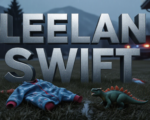In a decisive move, Colorado lawmakers have rejected Senate Bill 24-159, which aimed to ban all new oil and gas drilling in the state by 2030. The bill faced intense scrutiny during a marathon hearing, with proponents advocating for a transition away from fossil fuels for public health and environmental reasons. However, opponents, including industry-related groups, local governments, and Colorado-owned businesses, argued that the measure would have severe economic consequences, eliminating thousands of jobs and millions of dollars in revenue for the state, schools, and local communities.
The Battle Over Energy and Environmental Impact
The legislation, known as the Mod to Energy & Carbon Management Processes, would have required energy and carbon commission companies to phase out the oil and gas industry by ceasing the issuance of permits. Under the proposed law, companies had until 2030 to meet the expectations outlined in the bill. Notably, it would have also held former owners of so-called “orphan wells” responsible for cleaning up depleted well sites.

Balancing Climate Goals and Economic Realities
While proponents emphasized the urgency of addressing climate change and reducing greenhouse gas emissions, opponents raised valid concerns about the fiscal impact on state and local governments. Republican lawmakers grilled the bill’s sponsors, highlighting potential revenue losses for school districts due to reduced property taxes and fees paid by the industry. Democratic Senator Sonya Jaquez Lewis of Lafayette, a prime sponsor of the bill, defended its intent, stating that Colorado must balance its commitment to clean energy goals with the reality of finite drilling resources.
Ongoing Conflicts and the Path Forward
The rejection of this bill occurs amidst ongoing conflicts over oil and gas drilling. Industry-related groups and environmental activists have filed competing ballot proposals on oil and gas issues. These developments coincide with broader efforts at the federal, state, and local levels to promote renewable energy sources and combat air pollution. The Front Range, in particular, faces challenges related to ozone pollution, partly attributed to oil and gas production and tailpipe emissions.















